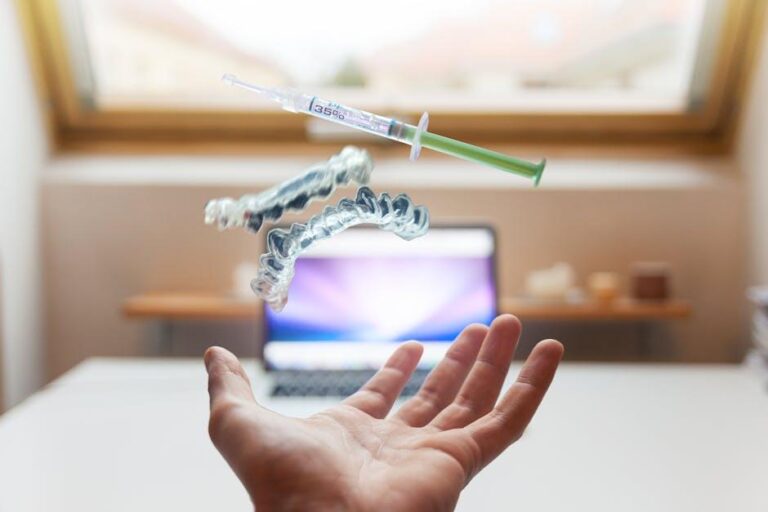
Dental Care During Pregnancy Is Safe but Remains Overlooked, Data Shows – UT Health San Antonio
By UT Health San Antonio
Introduction
Pregnancy is a time of exciting changes, but it also brings new health considerations, especially when it comes to dental hygiene. Despite abundant evidence confirming that dental care during pregnancy is safe, many expectant mothers neglect routine dental checkups and treatments. According to recent data from UT Health San Antonio, this overlooked aspect of prenatal care can have significant consequences for both mother and baby. In this article, we will explore why dental health is critical during pregnancy, debunk myths, and provide practical tips to maintain optimal oral hygiene safely.
Why Dental Care During Pregnancy Matters
Hormonal changes during pregnancy increase the risk of oral health issues such as gum disease, gingivitis, and tooth decay. Untreated dental problems can lead to pain, infection, and even adverse pregnancy outcomes such as preterm birth or low birth weight.
- Increased risk of gum disease: Elevated progesterone and estrogen levels make gums more sensitive and prone to inflammation.
- Oral bacteria and pregnancy: Poor oral health can promote harmful bacteria that may increase systemic inflammation.
- Impact on baby’s health: Studies link gum disease with premature delivery and low birth weight.
These factors highlight the importance of incorporating prenatal dental care as a regular component of pregnancy health management.
What UT Health San Antonio’s Data Reveals
The recent study conducted by UT Health San Antonio uncovered a surprising trend: despite clear safety guidelines, a significant percentage of pregnant women skip dental appointments or delay treatment due to misconceptions.
| Pregnancy Stage | Percentage Reporting Dental Visits | Common Reason for Avoidance |
|---|---|---|
| First Trimester | 35% | Fear of harming fetus |
| Second Trimester | 60% | Unawareness about safety |
| Third Trimester | 40% | Physical discomfort or fatigue |
The data reflects a clear need for targeted education and reassurance from healthcare providers that routine and emergency dental care are safe during pregnancy.
Debunking Common Myths About Dental Care in Pregnancy
Misconceptions often deter pregnant women from seeking dental care. Let’s address the most common myths:
- Myth 1: Dental x-rays are dangerous during pregnancy.
Fact: With proper shielding, dental x-rays pose minimal risk and are safe when necessary. - Myth 2: Treatments like fillings or cleanings harm the baby.
Fact: Routine dental cleanings and necessary treatments are safe and recommended, especially in the second trimester. - Myth 3: Bleeding gums are normal and should be ignored.
Fact: While hormonal changes increase gum sensitivity, bleeding gums should be evaluated and treated to prevent infection.
Benefits of Maintaining Oral Health During Pregnancy
Keeping a good oral hygiene regime and regular dental visits can provide multiple benefits:
- Prevention of gum disease and related complications
- Reduction of pregnancy-related oral discomfort
- Lower risk of transmission of harmful oral bacteria to newborns
- Improved overall maternal health and comfort
Practical Tips for Safe Dental Care During Pregnancy
To ease concerns and promote healthy habits, here are practical tips for expectant mothers:
- Schedule a dental checkup early: The second trimester (weeks 13-28) is generally considered the safest period for most procedures.
- Maintain daily oral hygiene: Brush twice daily with fluoride toothpaste and floss regularly.
- Inform your dentist about your pregnancy: This allows the dentist to tailor treatments and minimize any potential risks.
- Avoid elective cosmetic procedures: Postpone non-essential treatments like teeth whitening until after delivery.
- Balanced diet: Consume nutrient-rich foods to support both oral and fetal health.
First-Hand Experience: A Mother’s Story
Jessica, a soon-to-be mother, shared her experience:
“I was worried about visiting the dentist during pregnancy because I thought it might be unsafe for my baby. But after speaking with my OB-GYN and dentist, I realized routine cleanings and even a small cavity filling were perfectly safe. Staying on top of my dental care actually made me feel more confident and comfortable throughout my pregnancy.”
Conclusion
Dental care during pregnancy is not only safe but essential to the health and well-being of both mother and baby. UT Health San Antonio’s data shows that despite safety assurances, many pregnant women avoid dental services due to misconceptions or discomfort. It is crucial to dispel myths and promote awareness that oral health treatment and preventive care are a critical part of prenatal health management. Expectant mothers should communicate openly with both their dentists and healthcare providers to ensure optimal care. Following practical tips and embracing regular dental visits during pregnancy can lead to healthier outcomes for families.
Remember, your smile deserves care at every stage of life — especially during one as important as pregnancy!


